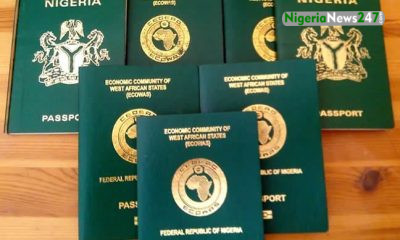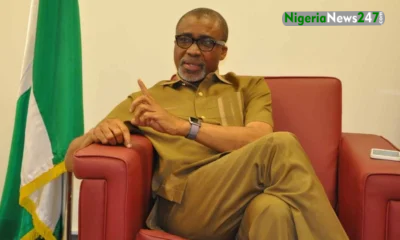NIGERIA NEWS
UK court sets aside P&ID appeal, upholds £43m award in favour of Nigeria

An appeal made by Process & Industrial Development (P&ID) against a previous ruling that suspended the enforcement of its $11 billion award against Nigeria has been rejected by a UK court of appeal.
Lord Justice Snowden, the presiding judge, granted P&ID permission to appeal the ruling in a unanimous decision, ultimately upholding the dismissal of the appeal. The panel also included Lord Justice Fraser and Julian Flaux.
Background of the Case
In 2010, P&ID signed a contract to construct a gas processing facility in Calabar, Cross River state. However, the project fell through due to the Nigerian government failing to meet its obligations.
The government claimed the deal was fraudulent, but P&ID refuted these accusations and criticized the government for spreading baseless conspiracy theories.
As a result, P&ID pursued legal action and obtained an arbitral award against the nation. On January 31, 2017, a panel decided that Nigeria must compensate P&ID with $6.6 billion in damages, along with seven percent interest before and after the judgment, totaling $11 billion.
In October 2023, Robin Knowles, a judge in the commercial courts of England and Wales, stopped the enforcement of the award after Nigeria argued that it was fraudulently obtained and violated section 68 of the English Arbitration Act 1996.
The judge determined that P&ID had bribed Nigerian officials involved in creating the gas supply and processing agreement (GSPA) in 2010.
During the arbitration hearings, it was discovered that P&ID had unlawfully obtained Nigeria’s confidential legal documents.
Consequently, the judge ruled that the company must reimburse Nigeria with £43 million as compensation for legal fees and expenses.
The Bone of Contention in the Appeal
On Friday, the UK Court of Appeal issued its ruling. In a document available on the UK judiciary website, a key point in the P&ID appeal was whether it was appropriate for the lower court to mandate payment of the £43 million legal fees in British pounds rather than in naira.
The company contended that Nigeria covered its legal expenses by converting naira from its consolidated revenue fund.
The next point of contention arises if this Court has jurisdiction and grants permission to appeal, focusing on whether the Judge’s decision to mandate P&ID to pay Nigeria’s costs in sterling was appropriate.
Nigeria, despite being invoiced and paying its English lawyers in sterling, argues that the payments were made using naira from its consolidated revenue fund.
As a result, Nigeria believes that the Costs Order should have been denominated in naira. This discrepancy holds significant financial implications due to the substantial depreciation of the naira against sterling between Nigeria’s lawyer payments and the issuance of the Costs Order.
With Nigeria’s legal expenses totaling around £43 million, P&ID claims that settling these fees during that period would have cost Nigeria approximately 23 billion naira.
However, if P&ID is now obligated to pay £43 million in costs, this amount could be converted by Nigeria at the current exchange rate to roughly 76 billion naira.
The main judge, Snowden, agreed with Nigeria’s argument that the legal expenses were paid in sterling, so the payment for the cost order should also be in the same currency.
In my opinion, the judge made the correct decision by accepting Nigeria’s clear explanation that since they were billed and had settled their solicitors’ fees in sterling, the court should issue its Costs Order in sterling as well. Consequently, I would allow P&ID to appeal but ultimately reject it.
The judgment document can be accessed for download here.





















You must be logged in to post a comment Login